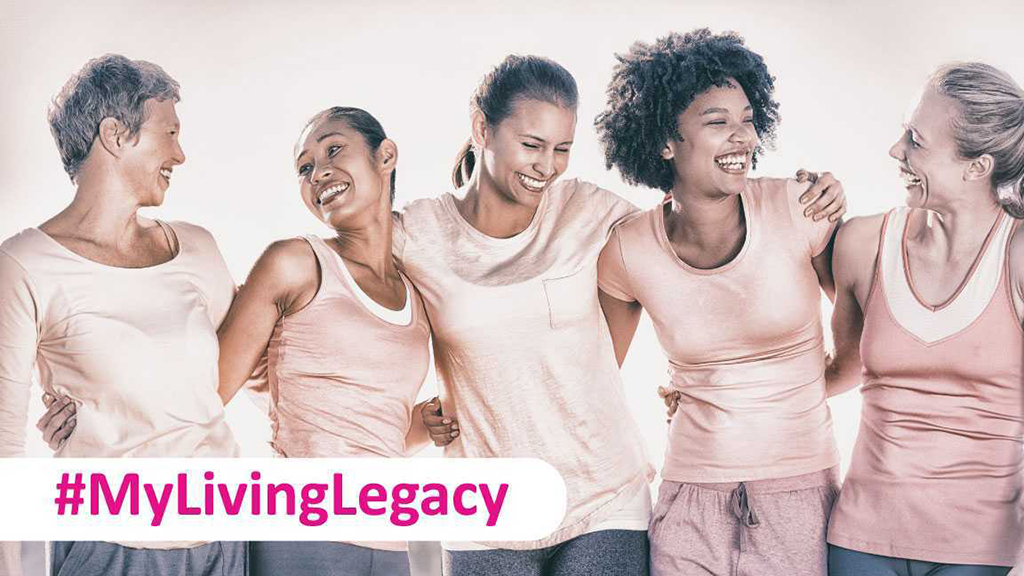Among the many areas of healthcare in America where racial disparities are apparent, participation in clinical trials is an especially dramatic one.
There are multiple obstacles related to shrinking the significant differences in participation rates between races.
In a JAMA analysis of data from the Food and Drug Administration between 2015 to 2019, some 84% of women in oncology trials were white and only 2% were Black. That enormous gap exists even though Black women are 41% more likely to die from breast cancer than white women.
For Keisha Stephney, who was diagnosed with triple-negative breast cancer in April 2021, the underrepresentation of African American women in clinical trials came as a surprise — one she says she doesn’t fully get.
“I still don’t understand how that could possibly be when they know who it affects the most,” she says.
In addition to being a breast cancer survivor, Stephney is an ANGEL advocate with the Tigerlily Foundation, a national women’s health and oncology organization.
Tigerlily is the partner of British pharma giant GSK in the My Living Legacy campaign, a national initiative to educate and empower Black communities on the benefits of enrolling in clinical trials for chronic diseases and cancers.
The legacy referred to in the campaign name is based on the essential role that participants play in advancing treatments for cancer and other diseases. Their efforts, which can seem like a small part of the equation, benefits all patients who follow them.

‘They’re protected and safe’
With culturally sensitive educational materials and community outreach events including advocates like Stephney, the campaign also aims to overcome some formidable factors that hinder Black participation in clinical trials.
When asked what she thinks is the biggest challenge, Stephney responds with one word, “fear,” alluding to the deep roots of mistrust in the modern medical system that still exist within the Black community.
Tigerlily’s founder and CEO Maimah Karmo, who is also a cancer survivor, agrees that a negative feeling toward the medical establishment – and sometimes towards medical research – is widespread. Addressing this issue head-on is key to raising Black participation in clinical trials.
“People need to know that they’re protected and safe,” she says. “Things happened in the past, but there’s a whole lot of new regulations, policies and guardrails in place for them.”
Along with explaining how trials operate and how said guardrails operate, My Living Legacy community events have provided opportunities for people who are interested in trails to meet the researchers who design and run them.
Anecdotally speaking, Karmo says some patients who are unfamiliar with clinical trials have relayed that they imagine someone’s in a room sticking them with a needle and they’re trapped.
That idea of the unknown can be scary, she points out, which is why the campaign is taking a sponsor into a community listening session to make potential participants more familiar with the process at hand.
“We’re saying, ‘This is what someone who works in pharma looks like and this is how much they care and why,’” she says.
Maintaining lines of communication
Nisha Patel, who was a pharmacist prior to joining GSK as engagement director of global demographics and diversity, acknowledges the historical mistrust and emphasizes the importance of a dialogue between researchers and potential clinical trial participants.
“We’re letting [prospects] know that people that work at GSK aren’t mad scientists — we’re physicians, nurses and pharmacists,” she says. “The more we talk to each other, the more people can relate to each other.”
The campaign is intended not only to reduce mistrust, but also increase awareness more broadly of the benefits of participation in clinical trials for individuals in the form of excellent support and care. After all, every cancer patient benefits from the advancements made in fighting the disease.
Tigerlily’s campaign materials explain everything on a patient-focused level, from how trials operate and the different phases, to the role of the FDA and what resources exist to help people who participate in trials.
“The campaign is about looking at ways to make things more palatable, more comfortable and more trusted,” Karmo explains, “It’s also about having the patient be a part of the process, not just the consumer of it.”
Patel adds, however, that while it is not the primary focus of My Living Legacy, addressing healthcare professionals (HCP) and implicit biases is central to GSK’s broader efforts to encourage diversity in clinical trials.
“With HCPs like doctors and nurses, it’s about letting them know that a protocol may not be as difficult for a patient as they think,” she says. “There are a lot of things that the sponsor may have in place to help a patient stay in the study, so let’s not automatically assume that a particular patient is not a good candidate.”
The My Living Legacy campaign is drawing to a close later this month and according to the most recently available data, it has reached a national potential audience of more than 37 million — including more than 10 million in target markets. Highlights of earned coverage include stories on Today.com and Essence.com as well as BlackDoctor.org, the largest online health resource specifically targeted to African Americans.
“This is not just a campaign for us. It’s a movement, not just a moment,” Karmo emphasizes. “Although the campaign might end this year, we’re going to continue doing this work going forward and we hope to continue to partner with GSK as a friend, as a partner and as an ally in the future.”







